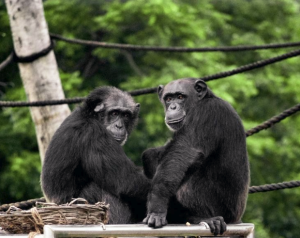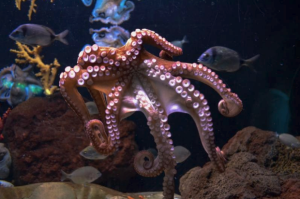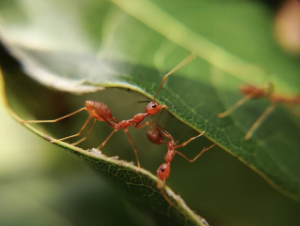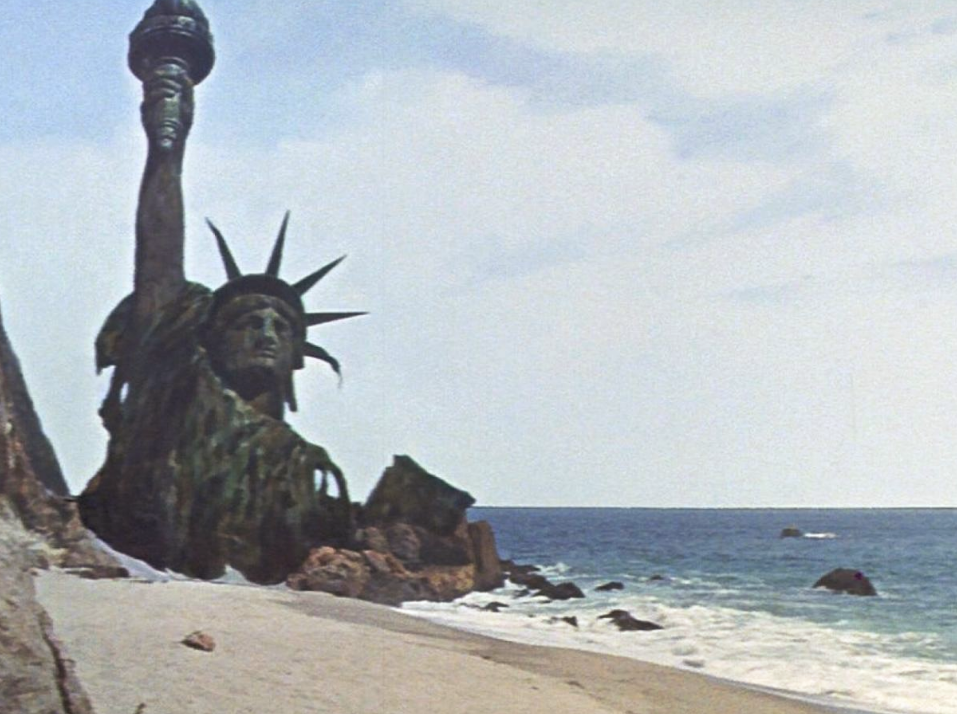If humans disappear, which creature will dominate the planet?
Some experts believe that many factors, such as climate change, pandemics, interrupted population growth, and even meteorites, could wipe out Homo sapiens from the face of the earth.
These thoughts are, “What will happen on Earth if modern man suddenly disappears?” raises the question.
For example, could the cult movie series Planet of the Apes, which has been remade many times since 1968, be real? Can apes gain access to human intelligence and seize domination of Earth?
Speaking to LiveScience, experts shared their assessments on the question of whether creatures as intelligent as him would emerge in the absence of man.
Monkeys
 “At this point the concept of convergence is going to be very important,” says geologist and popular science writer Dougal Dixon.
“At this point the concept of convergence is going to be very important,” says geologist and popular science writer Dougal Dixon.
Dixon, author of After Man: A Zoology of the Future, uses the concept of “convergent evolution” to refer to the formation of similar biological traits seen between unrelated species and lineages.
One of the most well-known examples of convergence is dolphins and fish. Although dolphins are mammals and follow a completely different development process, they have features very similar to fish. In this way, he could easily adapt to the seas.
Dixon, too, implies that only species that converge to man will fill the void.
Previous research has shown that the human hand gives it unique abilities in constructing structures and spatial reasoning.
Accordingly, a species that will assume the same ecological role as humans, that is, reshape the environment by building cities, will first need human hand-like limbs. This specifically means that the species has opposing thumbs, or at least a human equivalent of the thumb.
Humans’ closest relatives, chimpanzees (Pan troglodytes) and bonobos (Pan paniscus), already have opposing thumbs, which they use to make tools. If humans go extinct, it seems likely that these species will replace hominins.
But it will likely take hundreds of thousands or even millions of years for them to develop the ability to manufacture and use human-like tools, experts say.
Moreover, any catastrophe powerful enough to wipe out humans is likely to wipe out chimpanzees as well.
birds
 When the non-avian dinosaurs went extinct 66 million years ago, mammals filled their void. Likewise, if humans disappear, it may be possible for birds, the only surviving dinosaurs, to replace humans as the most intelligent land animals.
When the non-avian dinosaurs went extinct 66 million years ago, mammals filled their void. Likewise, if humans disappear, it may be possible for birds, the only surviving dinosaurs, to replace humans as the most intelligent land animals.
According to experts, contrary to common stereotypes, birds are very intelligent. Previous research has revealed that some birds, such as crows and ravens, are intelligent enough to even compete with chimpanzees.
It is also known that trained African gray parrots (Psittacus erythacus) can learn up to 100 words and perceive simple math.
What’s more, the birds can work in large groups, and social weavers (Philetairus socius) can even build communal nesting areas. But the wooded dwellings they will build will not resemble human metropolises at all.
octopuses
 “Intelligence allows you to change your behavior as a result of influence from your environment,” said cephalopod expert Jennifer Mather of the University of Lethbridge in Canada.
“Intelligence allows you to change your behavior as a result of influence from your environment,” said cephalopod expert Jennifer Mather of the University of Lethbridge in Canada.
According to this scale presented by Mather, octopuses, which are extremely intelligent creatures, are a strong candidate to replace humans.
Previous research has revealed that octopuses can learn to distinguish between real and virtual objects and improve their environment by removing unwanted algae from their nests and sealing the entrance with shells. It was also determined that octopuses off the coast of Australia lived in groups.
On the other hand, it is obvious that octopuses will have difficulty adapting to life on land. That’s because the blood cells of terrestrial vertebrates contain iron, which binds to oxygen very effectively. Octopuses and their relatives have copper-based blood cells.
Therefore, the habitat of these animals is limited to water saturated with oxygen. Mather says they have “a very inefficient metabolism” to dominate the planet.
Therefore, Mather sees it as unlikely that octopuses and other cephalopods will make the transition to land and replace humans as the most ecologically efficient land animals.
insects
 On the other hand, according to Mather, social insects such as ants and termites can do what octopuses cannot.
On the other hand, according to Mather, social insects such as ants and termites can do what octopuses cannot.
“I think insects are tougher than us,” said the scientist, continuing his words as follows:
They are also more durable than cephalopods.
Insects can quickly adapt to different environments. They’ve been here for 480 million years, according to the Natural History Museum of London. Moreover, over time, they were able to perform many challenging tasks, from flying to burrowing to swimming and even building elaborate city-like towers.
Previous research had shown that ants grow mushrooms, and termites can communicate through vibrations over long distances within the colony.
In short, according to experts, if humans go extinct, it is possible for insect colonies to take over the planet. But for this, they also need to survive climate change.
Impact of climate change
“We are very good at making short-term predictions with our gene sequencing technology and understanding of evolution,” said molecular ecologist Martha Reiskind of North Carolina State University in the US.
If humans suddenly disappear, climate change will continue to make many species drought-tolerant, Reiskind said. Cold-adapted species will continue to struggle, but polar bears or penguins are unlikely to thrive in the millennium after humans have gone.
For most experts, it is difficult to give a clear answer to the question of whether another species that survived Homo sapiens would have possessed human-level intelligence.
Mather thinks it might be possible. But it takes millions of years of selective pressures.
Dixon is more pessimistic than Mather on this issue. “I don’t think nature will make this mistake twice,” says the scientist.



